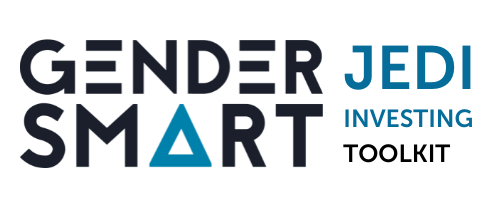Illinois State Treasurer's Office Standardized Due Diligence Questionnaire
Illinois State Treasurer's Office Sustainability/Equity/Diversity and Inclusion Standardized Due Diligence Questionnaire
ILPA Standardized Due Diligence Questionnaire
ILPA Standardized Due Diligence Questionnaire for institutional investors.
The Questions LPs Can Ask for Due Diligence on Diversity and Inclusion in VC
From Diversity VC: A list of questions which Limited Partners can use to ask GPs at venture funds during the due diligence process to better understand their approach to diversity and inclusion. The first set of questions is taken from the ILPA guidance, the second has been compiled by Diversity VC in discussions with GPs and LPs in Europe and the US.
van Ameringen Foundation Investment Policy Statement
van Ameringen Foundation Investment Policy Statement
Investor Statement of Solidarity to Address Systemic Racism and Call to Action
From Racial Justice Investing: Long-term investors' and financial service providers' commitment to action and accountability to achieve racial equity.
NorthLight Foundation Investment Policy Statement
NorthLight Foundation Investment Policy Statement
Canadian Investor Statement on Diversity & Inclusion
From Responsible Investment Association Canada: Signatory investors encourage Canadian public companies to lead in global efforts to address systemic inequities by advancing diversity and inclusion efforts and enhancing transparency and accountability, as well as challenge their own institutions to advance diversity and inclusion of underrepresented individuals within their organisations.
Racial Equity Investing: The Time Is Now
This report from Cambridge Associates discusses the renewed sense of urgency around racial equity investing and puts forward three actions investors can take to address the inequities inherent in our society.
Adasina Social Justice Investment Criteria
The data-driven set of standards that guides Adasina's investment strategies to reflect social justice values and advance progressive movements for change.
Rockefeller Brothers Fund Investment Policy Statement
Rockefeller Brothers Fund Investment Policy Statement
Narrowing the Gap: Why Long-Term Investors and Corporate Leaders Should View Addressing Economic Inequality and Improving Diversity as Critical Forms of Risk Management
From Ariel Investments: This paper is designed to help investors understand the urgent need to address economic inequality and provide corporate leadership teams practical steps to drive change within their companies and for society at large. Drawing on Ariel Investment’s work with the Black Corporate Directors Conference, the authors outline actions relating to people, purchasing, and philanthropy that companies can take to leverage corporate influence.
There is a Strong Business Case for Racial Equity, But Investors Must Look Beyond the Data
From Veris Wealth Partners: Veris Wealth Partners asserts, "[The] data indicates that too many public commitments to racial equity and racial justice amount to impact washing–it is more a marketing tactic than an authentic, action-backed commitment to change. To ensure authenticity we must look beyond public statements and seek action and accountability. We must look to see who is in leadership. Is racial equity evidenced in the C-suite or in the boardroom of these corporations? Is pay equity addressed at all levels of the firm? Unfortunately, not a lot has changed on that front."
Investors Are Committing to Action on Diversity. Now What?
By Marcella Pinilla and Nandini Hampole: Amid a wave of societal commitments to action on diversity, equity, and inclusion (DEI) and racial justice, investors are stepping up commitments and vowing to intensify engagement with companies on DEI. Despite some progress made to reflect a country’s demographics in the corporate office, in the U.S. and around the world, we are now amid a racial reckoning that calls on all of us to reflect on the real progress made and what needs to advance for real change. So, what does that mean for companies, and how should they prepare to meet the moment? BSR's report seeks to answer this question.
Inclusive Impact: A Comprehensive Review of Diversity in the Social Investment Sector
From The Diversity Forum: In 2018 Inclusive Boards was commissioned by the Diversity Forum, funded by the Connect Fund to extend and contribute to existing research on diversity in the social investment sector. The primary aim of this research was to use different data collection methods to better understand why there are ceilings for women in management positions and ethnic minorities in back office functions. They also examined other diversity strands whilst taking into account intersectionality factors.
Diversity Beyond Gender: The State of the Nation for Diverse Entrepreneurs
By Erika Brodnock from Extended Ventures: This vital piece of research, which was carried out by Extend Ventures with the support of Impact X Capital Partners and Tech Nation, looks at how the colour of a founder’s skin can adversely affect their access to capital in Britain.
Social Equity Investing: Righting Institutional Wrongs
From Cambridge Associates: This paper reviews the current state of social equity in the United States, highlight eight core social equity issue areas, and discuss the lessons they've learned in constructing portfolios with these investments. They define social equity investing as investments to promote equal opportunity and access for all, regardless of background, but understand that many investors have different definitions. While investors need to be mindful of risks, the authors believe that investments can be made to promote a social equity impact agenda across the portfolio.
Ethnic Origin and Disability Data Collection in Europe: Measuring Inequality – Combating Discrimination
From The Open Society Foundation: This report seeks to bridge the gap between theory and practice in relation to the collection of disability and ethnic origin data in the EU. The report notes that there is a widely held belief that the law prohibits any collection of sensitive data pertaining to disability and ethnic origin; however, equality data can be collected in compliance with the exemptions enumerated in Article 8 of Directive 95/46/EC.
Statistics Canada Definition of "Population group of person"
From Statistics Canada: A definition of "Population group of person." "Population groups" are the groups used on questionnaires which collect data on the visible minority population for Employment Equity purposes. The Employment Equity Act defines visible minorities as "persons, other than Aboriginal peoples, who are non-Caucasian in race or non-white in colour".
Discussion Document for a Pan-Canadian Strategy to Advance Gender Equality
The Discussion Document for a Pan-Canadian Strategy to Advance Gender Equality of the Gender Equality Network of Canada is a culmination of the experiences, stories, expertise, and aspirations of over 150 leaders from across what is commonly known as Canada, nominated by local, federally funded, gender equality projects. The Discussion Document was developed out of three years of dialogue, learning, and knowledge sharing of the Gender Equality Network of Canada and is their collective response to a pandemic of gender-based violence, inequity, and the perpetually operationalized patriarchy which informs, directs, and administers our lives as women and people of marginalized genders.

